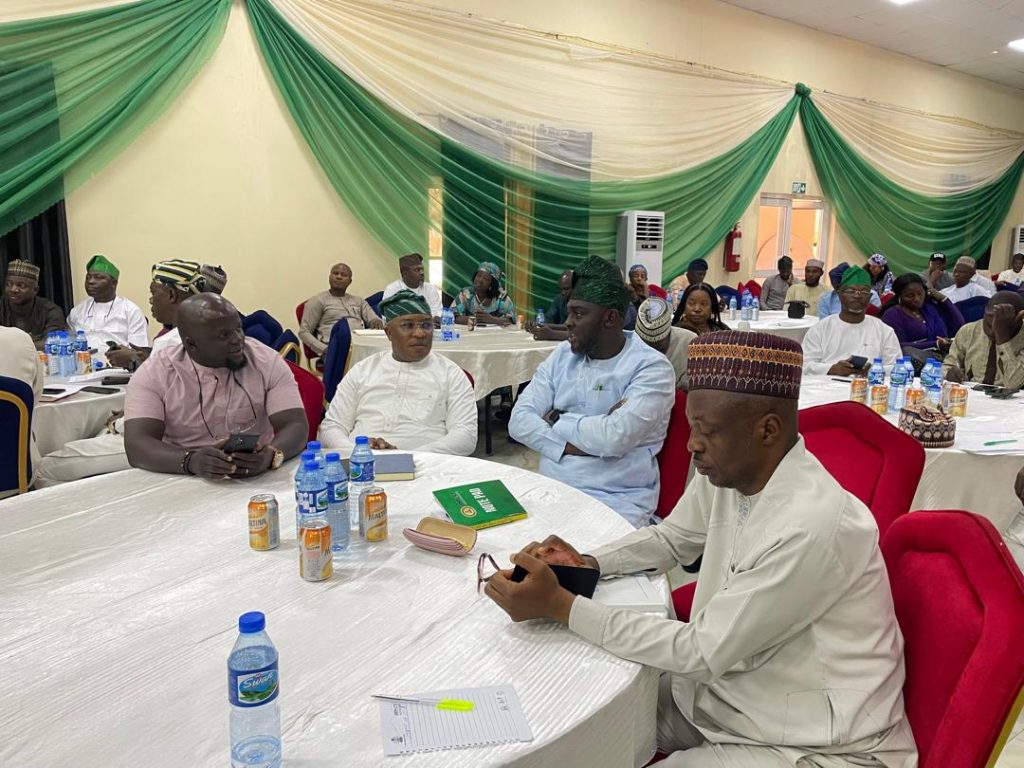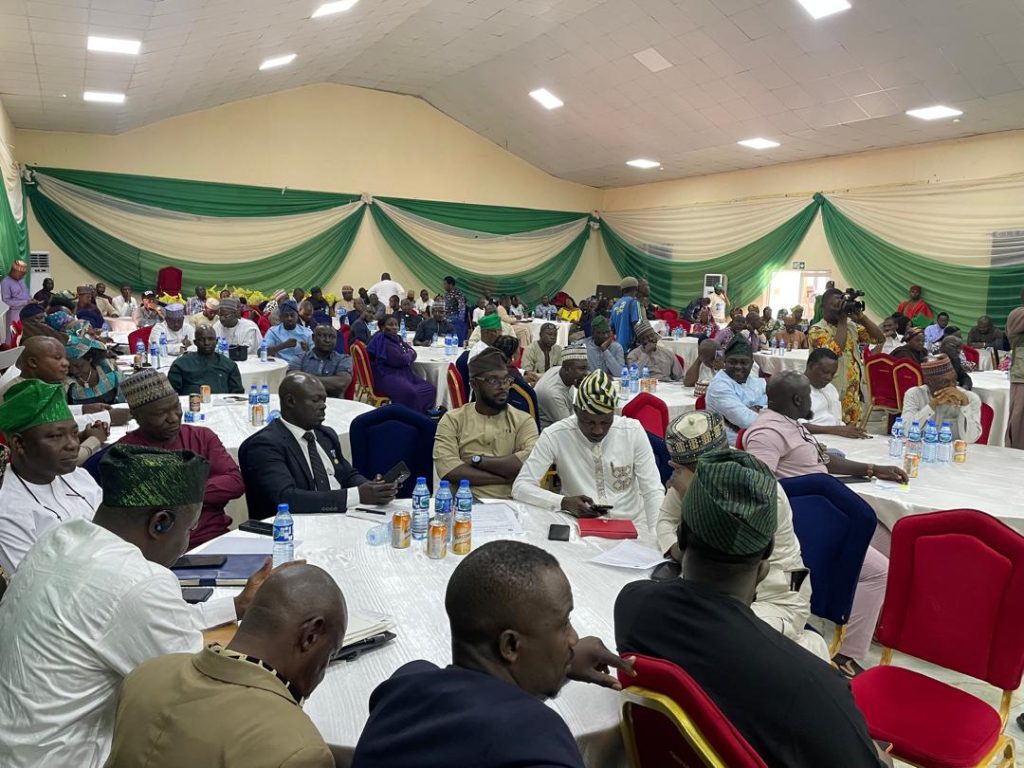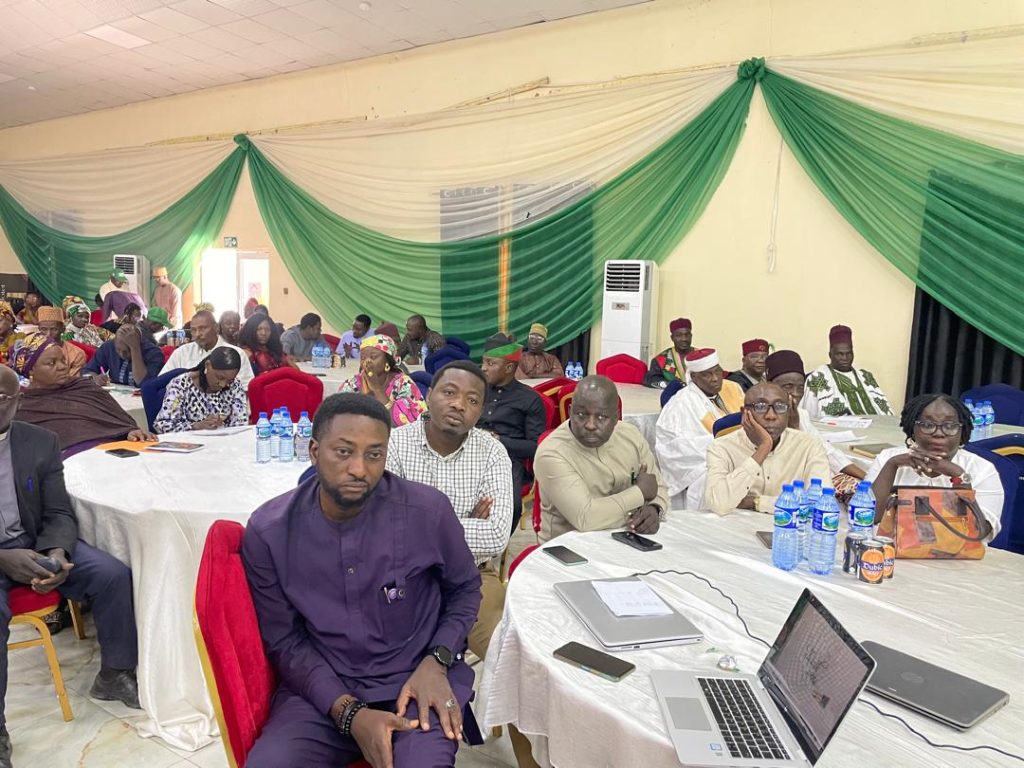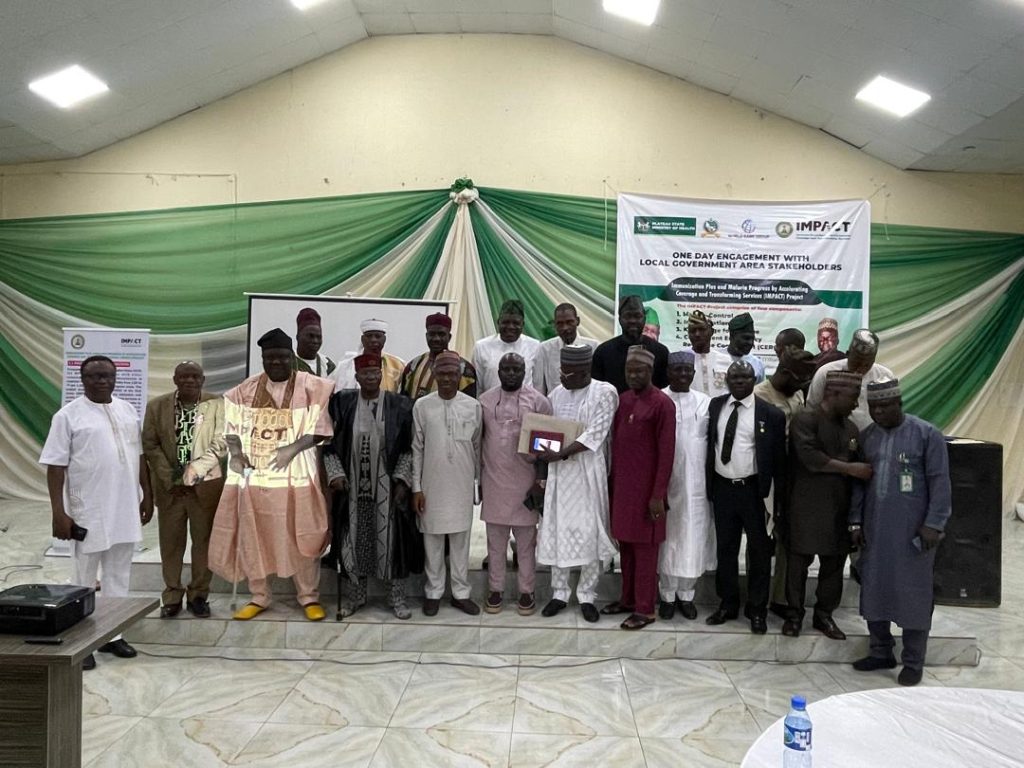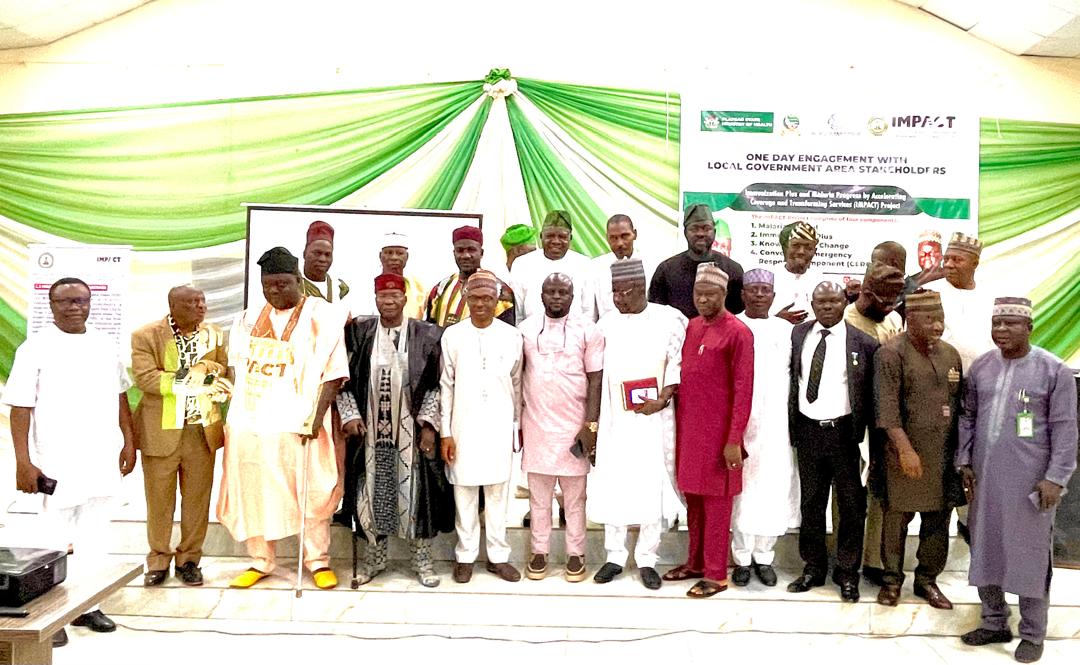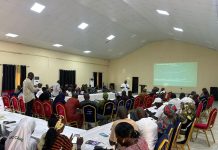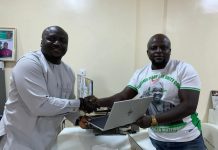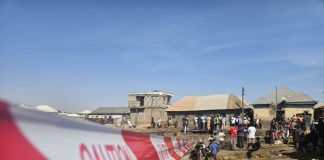The Immunization Plus and Malaria Progress by Accelerating Coverage and Transforming Services (IMPACT) Project in Plateau State hosted a critical stakeholders’ engagement on Monday, January 27, 2025, at Crispan Hotel, Jos. The meeting brought together executive chairmen of the 17 local government areas (LGAs), traditional leaders, religious groups, and other key health sector actors to deliberate on enhancing primary healthcare delivery in the state.
Speaking at the event, Hon. Silas Patrick Dung, Executive Chairman of Jos South Local Government, highlighted the importance of collaboration between contractors, local government chairmen, and communities. He emphasized the need for transparency in project implementation, including access to Bills of Quantities (BOQs) and contractor information, to ensure proper monitoring and accountability.
“We need to know the contractors and have access to the BOQs to monitor these projects effectively. This will help us ensure that contractors adhere to the agreed standards,” he said. He also urged the project team to involve local government chairmen in the recruitment of community health workers, ensuring they are strategically deployed to underserved areas.
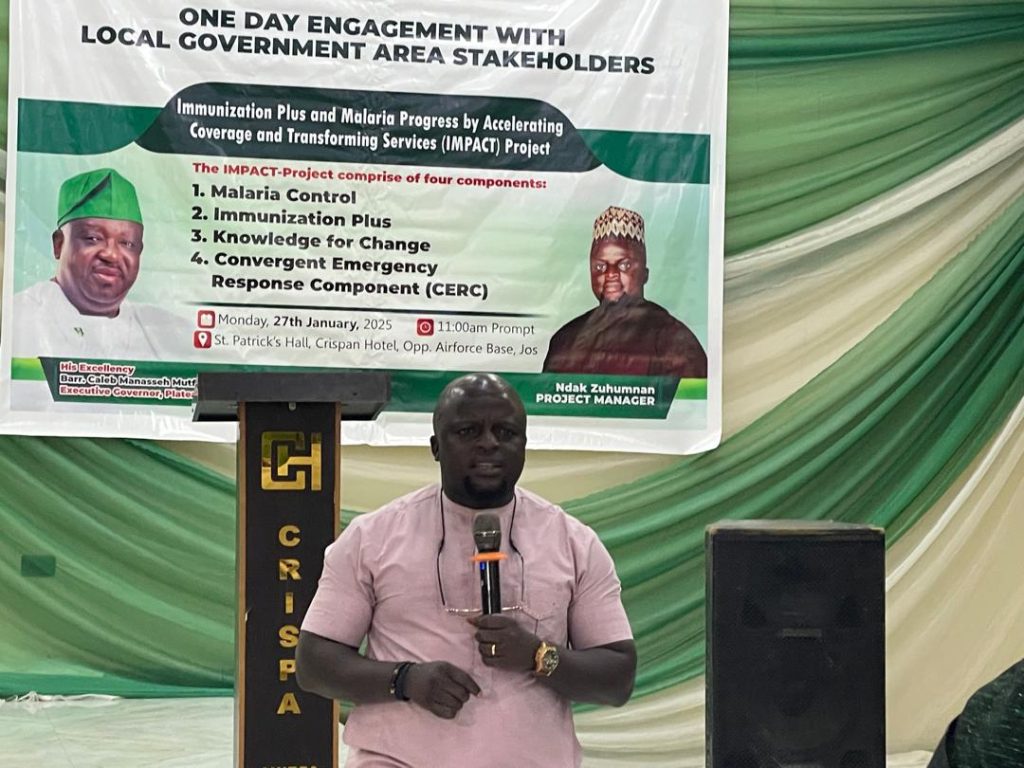
Nurse Ndak Zuhumnan, the Plateau State Project Manager for the IMPACT initiative, explained that the engagement aimed to foster grassroots ownership of primary healthcare services. According to him the state government has awarded contracts for the upgrade of 82 primary healthcare centers across the 17 LGAs, ensuring essential amenities like fencing, motorized boreholes, solar power, and staff quarters are in place.
“The local government authorities must take ownership by monitoring these upgraded facilities and ensuring contractors deliver as agreed. This is vital to improving healthcare delivery, particularly in reducing maternal and infant mortality rates,” Zuhumnan stated.
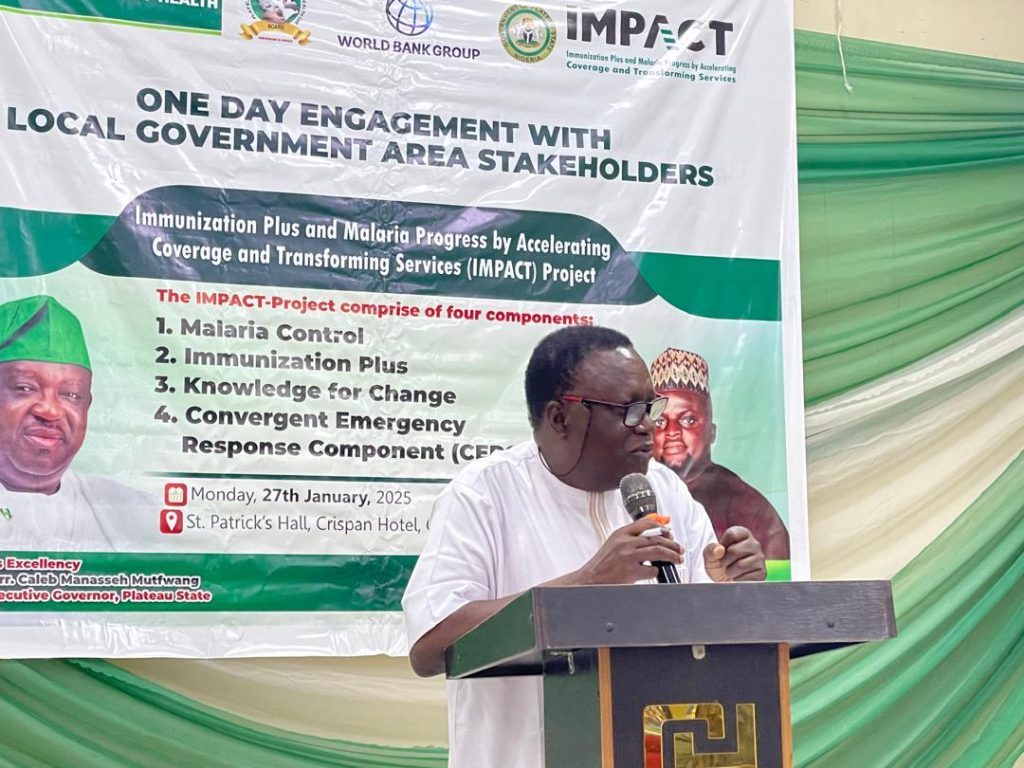
Dr. Raymond Juryit, Executive Secretary of the Plateau State Primary Health Care Board, pointed out the critical shortage of skilled healthcare workers at primary healthcare centers. He revealed plans to recruit additional staff, with the goal of addressing the state’s human resource deficit in healthcare. “By the end of this administration, we aim to employ up to 11,000 health workers to fill the gaps in our facilities,” he noted.
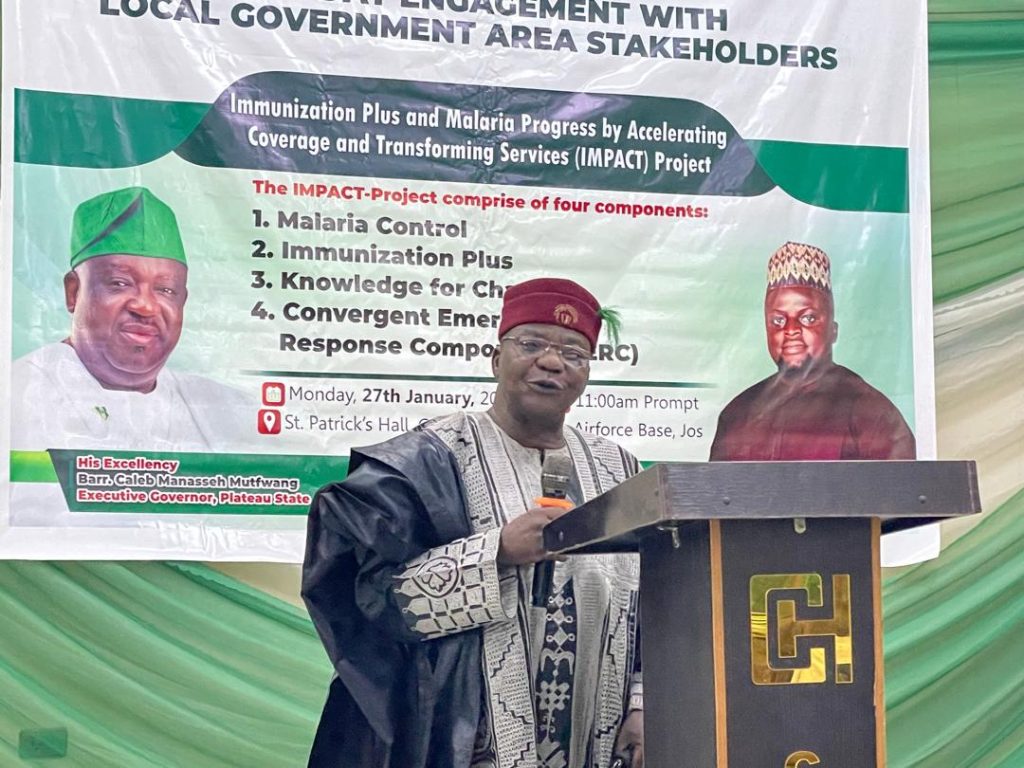
Traditional rulers also pledged their support, with HRH Rev. Dr. Isaac Wakili of Jos East stressing the importance of involving community leaders in healthcare initiatives. “As custodians of the people, we are ready to collaborate to ensure this program succeeds and improves the lives of our people,” he said.
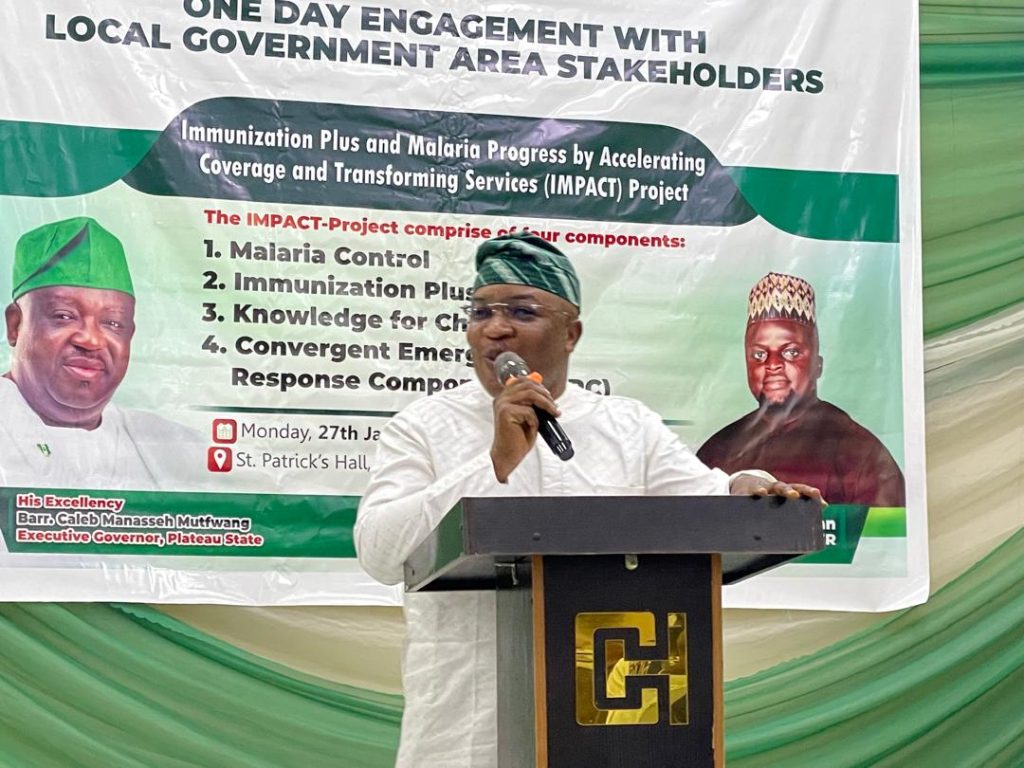
The Commissioner for Local Government and Chieftaincy Affairs, Chief Ephraim Usman, lauded Governor Caleb Mutfwang’s commitment to revitalizing the health sector. He praised the synergy between the state and local governments in driving the healthcare agenda forward.
“Governor Mutfwang has demonstrated remarkable leadership in the health sector, revamping multiple primary healthcare centers and reducing infant mortality. The local government chairmen here today signify their commitment to sustaining these efforts,” Chief Usman stated.
The stakeholders resolved to intensify community sensitization efforts, ensuring grassroots involvement in healthcare delivery. They also emphasized the importance of regular engagement between local authorities, traditional leaders, and health sector operators to sustain the gains of the IMPACT project.
